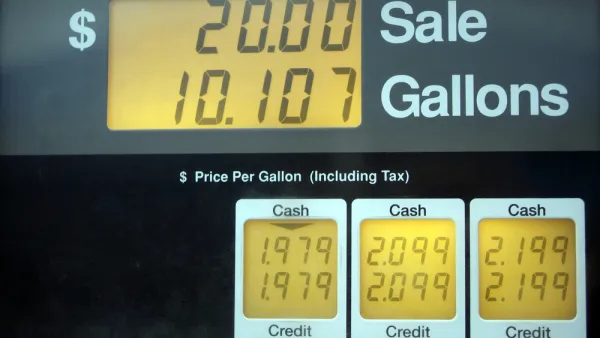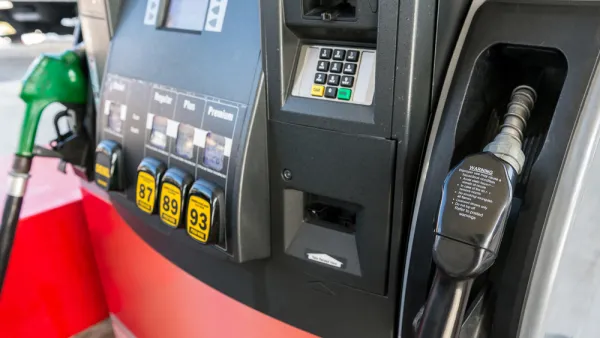The five-year transportation reauthorization known as the FAST Act relies on $70 billion of one-time, non-user fees to fund the $302 billion bill. The act also allows the government to fund the development of sustainable funding options by states.
Rep. Peter DeFazio (D-Ore.), ranking member of the House Committee on Transportation & Infrastructure, and Del. Eleanor Holmes Norton (D-D.C.), ranking member of the Subcommittee on Highways and Transit, "said in a letter to Transportation Secretary Anthony Foxx that states should begin experimenting with new infrastructure funding mechanisms now, despite the fact that Congress just passed a five-year, $305 billion highway bill last year," writes Keith Laing for The Hill.
"While the bill [PDF] was fully paid for, it did not resolve long-term solvency challenges of the Highway Trust Fund (HTF)," notes Norton's press release. "To help address this problem, the FAST Act establishes the Surface Transportation System Funding Alternatives program, which provides up to $95 million to enable States to test and demonstrate innovative methods to fund needed infrastructure improvements.”
An analysis [PDF] of the FAST Act [see page 14] by the Washington, D.C.-based American Road & Transportation Builders Association lists the program under Transportation Funding Alternatives:
The bill directs the Secretary to make grants to states to demonstrate alternative user-based revenue mechanisms that could maintain the long-term solvency of the HTF. The goal is to test at least two alternative user-based revenue mechanisms and to provide recommendations for adoption and implementation at the federal level.
Funding will be up to $15 million in FY 2016 and $20 million per year thereafter, and the federal share will be 50 percent
"DeFazio and Holmes Norton said Thursday that states should get to work now on finding a replacement for the beleaguered gas tax," writes Laing.
"We believe states are the laboratories of democracy, and the FAST Act provides the necessary funding to incentivize States to explore novel user fee structures that provide sustainable transportation funding."
Hat tip to Mayer Horn via University of Minnesota Congestion Pricing Listserv.
FULL STORY: House Dems want states to test gas tax alternatives

Analysis: Cybertruck Fatality Rate Far Exceeds That of Ford Pinto
The Tesla Cybertruck was recalled seven times last year.

National Parks Layoffs Will Cause Communities to Lose Billions
Thousands of essential park workers were laid off this week, just before the busy spring break season.

Retro-silient?: America’s First “Eco-burb,” The Woodlands Turns 50
A master-planned community north of Houston offers lessons on green infrastructure and resilient design, but falls short of its founder’s lofty affordability and walkability goals.

Test News Post 1
This is a summary

Analysis: Cybertruck Fatality Rate Far Exceeds That of Ford Pinto
The Tesla Cybertruck was recalled seven times last year.

Test News Headline 46
Test for the image on the front page.
Urban Design for Planners 1: Software Tools
This six-course series explores essential urban design concepts using open source software and equips planners with the tools they need to participate fully in the urban design process.
Planning for Universal Design
Learn the tools for implementing Universal Design in planning regulations.
EMC Planning Group, Inc.
Planetizen
Planetizen
Mpact (formerly Rail~Volution)
Great Falls Development Authority, Inc.
HUDs Office of Policy Development and Research
NYU Wagner Graduate School of Public Service



























